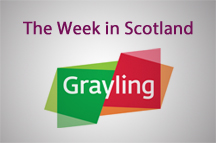 This week commentators have been making the most of Scottish Labour’s slow polling progress, which could deny Miliband the chance of forming the next UK Government. Indeed, Labour still needs that big swing north of the border, but six campaigning weeks in, Labour will remain hopeful that the slow creep in the polls will quicken and the SNP will begin to look over their shoulder.
This week commentators have been making the most of Scottish Labour’s slow polling progress, which could deny Miliband the chance of forming the next UK Government. Indeed, Labour still needs that big swing north of the border, but six campaigning weeks in, Labour will remain hopeful that the slow creep in the polls will quicken and the SNP will begin to look over their shoulder.
Slow progress for Murphy
The Survation poll this week showed a Labour increase of 1% from its previous poll, only marginally narrowing the SNP lead to a gulf of 17%. Scottish Labour has made progress in restoring its image and credibility. It has instigated a push on a raft of policies including 1,000 additional nurses; a non-profit ScotRail; 100,000 new homes; an emphasis on city deals and devolution of powers away from Holyrood; a Glasgow crossrail – and there’s more to come.
Whether through fear of losing seats or greater discipline, there has been less backroom media briefing and it has managed to get under the skin of the SNP Government. Scottish Labour will also take further steps to more closely manage its direction and is reforming to achieve it. At the party’s conference on 7 March, members will be asked to give the leader and deputy leader a seat on the Scottish Executive Committee and Scottish Joint Policy Committee.
Not Written Off Yet
 Psephologist, John Curtice, points out that it has taken “three months [for Scottish Labour] to knock five points off the SNP’s lead”, but putting this in perspective, we are a mere four months past Lamont’s resignation and the depiction of Scottish Labour as a “branch office”. It’s a low base to rise from. It takes time to restore unity, credibility, recapture a share of media voice and ultimately, create conditions in which the electorate can trust and have confidence in Labour. Writing them off too soon would be unwise – even the SNP has held back in revelling in their figures.
Psephologist, John Curtice, points out that it has taken “three months [for Scottish Labour] to knock five points off the SNP’s lead”, but putting this in perspective, we are a mere four months past Lamont’s resignation and the depiction of Scottish Labour as a “branch office”. It’s a low base to rise from. It takes time to restore unity, credibility, recapture a share of media voice and ultimately, create conditions in which the electorate can trust and have confidence in Labour. Writing them off too soon would be unwise – even the SNP has held back in revelling in their figures.
As John Curtice’s graph shows, the 2010 results dictate the need for big swings. If Labour can close the gap to under 10%, the damage would be limited, but Labour hasn’t shaken some of its old habits which could hamper its progress.
Old Habits
The central message of ‘Vote SNP, get Tory’ is negative, and calculated in tone. Contrast that with an emotive, positive message of ‘Vote SNP for a greater Scottish voice’. Better Together won the day on the referendum, but lost the campaign because a positive message trumps a negative one. Labour are at risk of repeating the same mistake. (Even though attempts at embracing positive referendum messages and developing ‘Vote Yes for Labour’, were widely panned and then dropped.)
 The splurge of policy has also come at the cost of a widely understood narrative. Scottish Labour still needs to join the dots on their policy promises and develop a clearer vision that Scotland understands. Making pledges such as ‘1,000 more nurses’ is well and good for coverage, but neglects an analysis of understanding the real stresses on the Scottish NHS and creating a vision for it.
The splurge of policy has also come at the cost of a widely understood narrative. Scottish Labour still needs to join the dots on their policy promises and develop a clearer vision that Scotland understands. Making pledges such as ‘1,000 more nurses’ is well and good for coverage, but neglects an analysis of understanding the real stresses on the Scottish NHS and creating a vision for it.
Murphy likes to be the underdog in a fight, but will have to do even more to get on top with only three months to go.
Also this week
Labour’s Kezia Dugdale took the First Minister to task on one of her political cornerstones following a report by the Family and Childcare Trust which reported that fewer than one in six Scottish Local Authority areas have enough childcare capacity to meet the needs of working parents.
The Scottish Tories are gathering in Edinburgh today and tomorrow for their annual conference. Leader Ruth Davidson is expected to call for a ‘Parent Power’ law to shake up the Scottish education system, which the party believes is stagnating.












